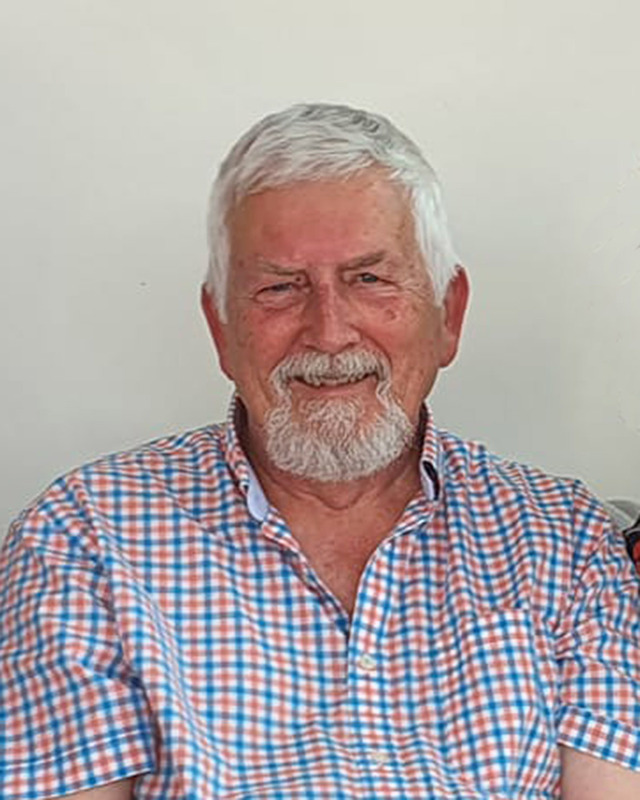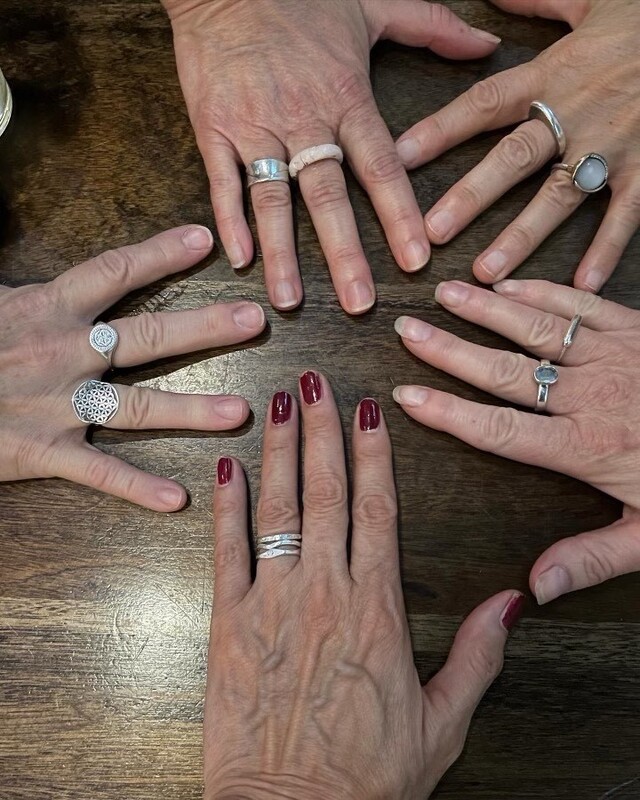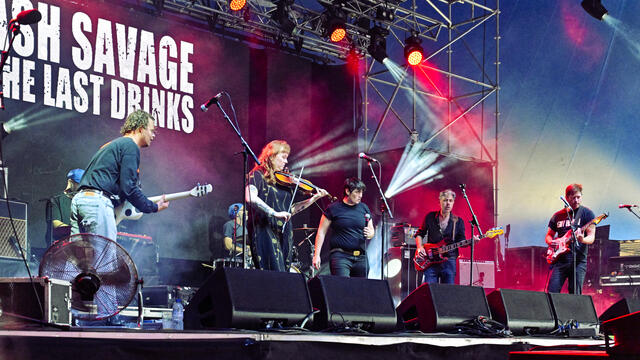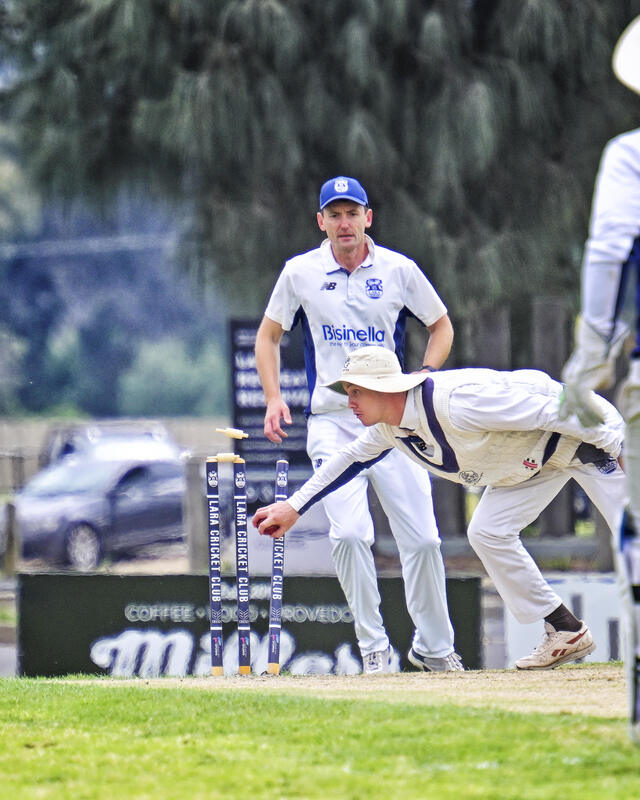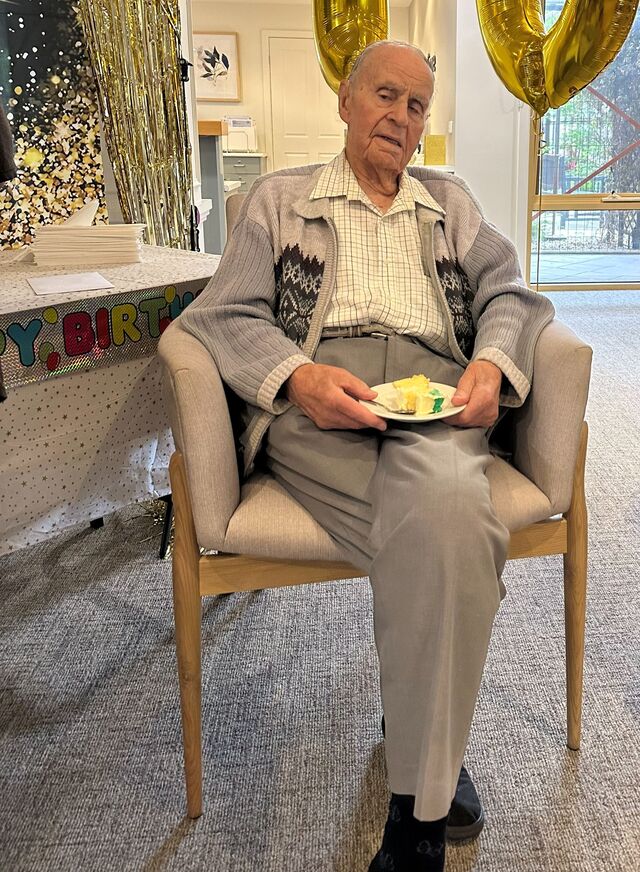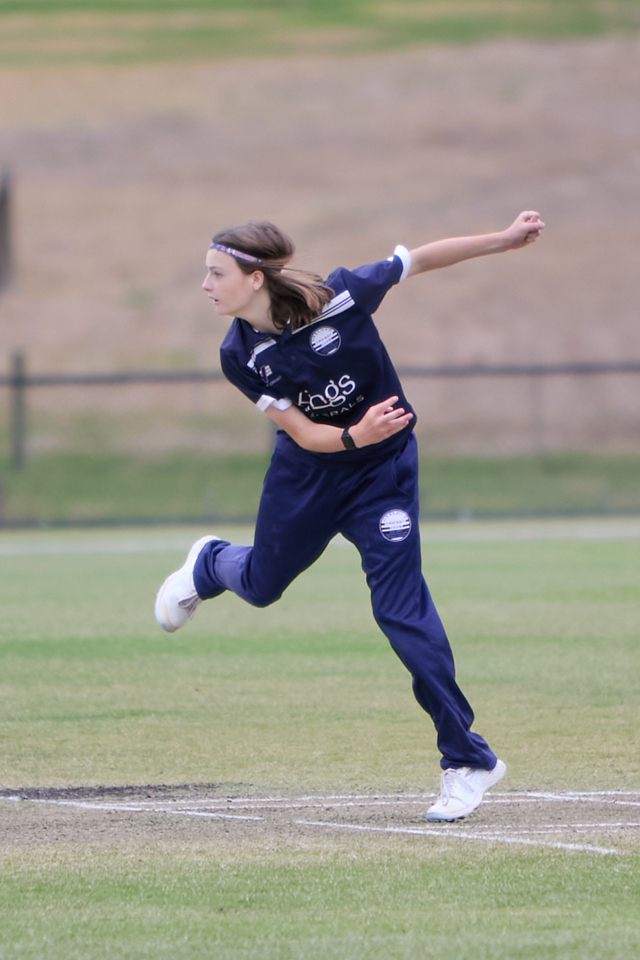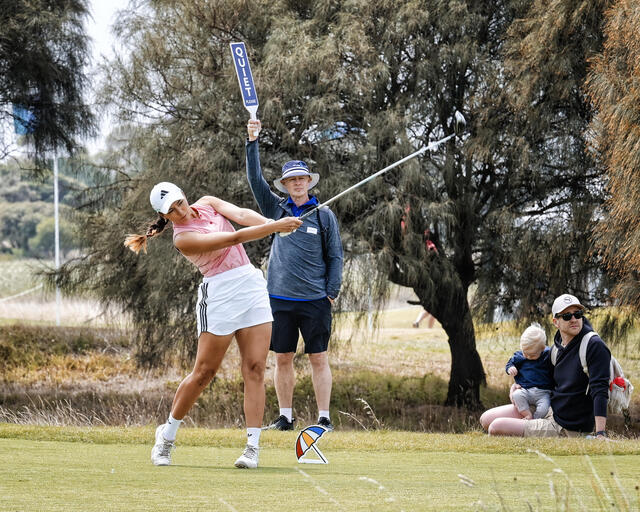There were only 10 entrants for this difficult writing task based on a picture. Some writers concentrated on the details of the picture while others used the picture as a stimulus to an unusual approach such as a clairvoyant session or a story about a business venture. Highly recommended were Ali Holborn, Glen Taylor and Alana Hannaford. Please note that the advertisement for topic five is your last chance to make the final which offers a prize of $1000.
Judges’ comment.
The story opens with a pertinent comment about Pip’s marital status and ends with a casual but biting one sentence conclusion. The story is then framed around the discovery of the old photo of five friends, then a detailed description of the character and the funeral of one of their beloved friends. It ends with playing one of their games that has an emphasis on their hands. This was a well-rounded story based on the stimulus of the picture of the five hands.
Wes Furyk
I’m what was known as a displaced person after WWII and became the first in my family to go to university. I studied to be a teacher but gave up on that when I realised how tough it was. After that I went on to do lots of things I wasn’t trained to do. I’m not sure I did them well, but I had a good time along the way. My wife Natalie and I raised two beautiful children together and they provided us with some wonderful grandchildren to enjoy watching as our hair turns white and they begin to make their own way in the world.
Paper on the Table by Wes Furyk
Pip sat in the middle of the room and surveyed the chaos. It was always the same; her husband professed good intentions, but when it came to doing something, Frank always found a way to avoid it.
“Don’t worry darling,” he said. “Do what you can and we’ll finish tomorrow. I just found out about these tickets and it’s too late to pull out.”
They were downsizing their home in a couple of weeks and Frank decided it would be cheaper to do their own packing; then he left everything to her. The ‘junk room’, largely full of unopened boxes from previous moves, was the last. It should have been easy, but once again, she had to deal with it alone while Frank went to the footy with his mates; earlier that day he was too tired to watch his grandsons play.
With a sigh she cut through the tape of the nearest box and began the impossible task of deciding what needed to be discarded before their final move. After about an hour of frustrating indecision she uncovered a small, mother-of-pearl encrusted, wooden casket and exhaled a sigh of pleasure at the sight of the long lost treasure. She knew it contained photos and mementos of their two sons growing up.
The photo on top of the pile, however, depicted five female hands resting on a wooden table. Happy memories and sad ones too, flooded her mind as a recalcitrant tear made its way down her face and a hand rose of its own accord to stifle a quiet gasp.
The photo was taken after the funeral for Roz, a member of the team that won the All-Schools Hockey Championship. Within the squad of 16, eight of them, dubbed the Great Eight, formed a special bond. They appeared to have little in common with each other, except for hockey, but they were inseparable: they met between classes; ate lunch together
and endlessly practised skills in the schoolyard; outside school they partied together or just hung out in the town’s main street.
They remained in touch after leaving school, but gradually careers, marriage and children took precedence. The photo was taken about a dozen years ago – after Roz’s wake. Roz was the third of their little clique to die young. Patty and Suzie succumbed to cancer, but everything suggested Roz deliberately overdosed on drugs.
Bedevilled by lifelong insecurity Roz sought courage in alcohol and drugs. Drugs removed inhibitions; sobriety brought self-loathing. It was a simple equation.
Roz was tall, slim and athletic; a beautiful vision flying down the wing with the ball seemingly attached to her stick. Her wavy black hair framed a gentle, vulnerable face with sad, but startling blue eyes that evoked instant empathy. Roz saw none of that; she saw a crooked nose and a shapeless boyish physique. She was always aware of her nose even though the perceived flaw was only visible in profile and she could only see it if she deliberately tortured herself by looking sideways into a mirror.
Friends insisted there was nothing wrong with her but added that if she wasn’t comfortable, she should simply do something about it. There’s no stigma attached to plastic surgery, they said, so she should just go for it.
Roz rejected the assurances but their solution merely confirmed what she knew; she was ugly.
Alcohol and drugs decreased her inhibitions but increased her desperate need for flattery from everyone, even strangers. Eventually the Great Eight also avoided her when her playful flirting with bewildered husbands turned toxic. One day Roz simply disappeared and decades passed with no word until her mother called with the sad news.
The friends retired to the pub after the modest wake and reminisced about their glory days while they played their old pub game; reverse ‘paper-scissors-rock’ where the ‘winner’ would buy the next round.
They called time on the game after four attempts failed to knock anyone out. When the laughter – perhaps forced – subsided, they decided the odds of presenting identical results in four consecutive attempts were so unlikely it must have been Roz telling them it was time to go. They finished on ‘paper’ and snapped the photo to remember the occasion.
It was the last time Pip saw, spoke or laughed with any of the Great Eight. It was time, she told herself, to do something about it. Friends shouldn’t just meet at funerals.
Frank could finish the packing when he got home.

